 W
WHermann Broch was a 20th-century Austrian writer, considered one of the major Modernists.
 W
WDiana Budisavljević was an Austrian humanitarian who led a major relief effort in Yugoslavia during World War II. From October 1941, on her initiative and involving many co-workers, she organized and provided assistance to mostly Serbian Orthodox women and children detained in the Ustashe camps in the Independent State of Croatia, a Nazi puppet state established in occupied Yugoslavia. The operation, known as "Action Diana Budisavljević", succeeded in saving around 10,000 children. Budisavljević described the course of the Action in a diary, starting with 23 October 1941 and the final entry on 7 February 1947. The diary was released in Croatian in 2003. After her story was better publicized in 2012, she received substantial posthumous recognition.
 W
WAlbert Drach was an Austrian-Jewish writer and lawyer. He was born in Vienna and died in Mödling. In 1988 he was awarded the Georg Büchner Prize by the Deutsche Akademie für Sprache und Dichtung for being a "courageous and sensitive contemporary witness who expresses the madness of our century without resentment in poetic poignancy".
 W
WPascale Ehrenfreund is an Austrian astrophysicist. Ehrenfreund holds degrees from the University of Vienna and Webster Leiden. Prior to becoming a Research Professor of Space Policy and International Affairs at George Washington University, she was a Professor at Radboud University Nijmegen, Leiden University, and University of Amsterdam in the Netherlands. She was the first woman president of the Austrian Science Fund (FWF) and in 2015, was elected as CEO of the German Aerospace Center. She is the first woman to lead a major research facility in Germany. The main-belt asteroid 9826 Ehrenfreund is named in her honor.
 W
WEtta Federn-Kohlhaas or Marietta Federn, also published as Etta Federn-Kirmsse and Esperanza, was a writer, translator, educator and important woman of letters in pre-war Germany. In the 1920s and 1930s, she was active in the Anarcho-Syndicalism movement in Germany and Spain.
 W
WPaul Karl Feyerabend was an Austrian-born philosopher of science best known for his work as a professor of philosophy at the University of California, Berkeley, where he worked for three decades (1958–1989). At various points in his life, he lived in England, the United States, New Zealand, Italy, Germany, and finally Switzerland. His major works include Against Method (1975), Science in a Free Society (1978) and Farewell to Reason (1987). Feyerabend became famous for his purportedly anarchistic view of science and his rejection of the existence of universal methodological rules. He was an influential figure in the sociology of scientific knowledge. Asteroid (22356) Feyerabend is named in his honour.
 W
WSigmund Freud was an Austrian neurologist and the founder of psychoanalysis, a clinical method for treating psychopathology through dialogue between a patient and a psychoanalyst.
 W
WEgon Friedell was a prominent Austrian cultural historian, playwright, actor and Kabarett performer, journalist and theatre critic. Friedell has been described as a polymath. Before 1916, he was also known by his pen name Egon Friedländer.
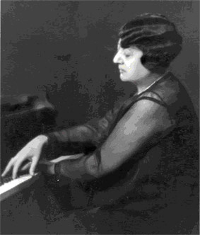 W
WCamilla Frydan, birthname Herzl, married name Friedmann, pseudonym Herzer, (1887–1949) was an Austrian pianist, soubrette singer, composer and song writer. She performed in operettas and revues in Vienna and Berlin before she was forced to emigrate to the United States in 1938. She settled in New York where she produced hundreds of melodious numbers which were published by her Empress Music Publishing.
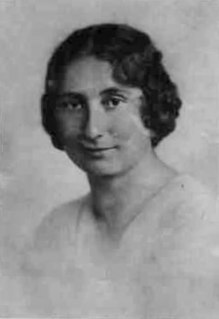 W
WPaula Grogger was an Austrian writer.
 W
WAuguste Groner, was an Austrian writer internationally notable for detective fiction. She also published under the pseudonyms Olaf Björnson, A. of the Paura, Renorga, and Metis.
 W
WReinhold Hanisch was an Austrian migrant worker and sometime business partner of the young Adolf Hitler. Hanisch, who published articles on Hitler, with whom he had lived in 1910, is, next to August Kubizek, one of the few witnesses to Hitler's Vienna years.
 W
WJosef Haslinger is an Austrian writer.
 W
WFriedrich August von Hayek, often referred to by his initials F. A. Hayek, was an Austrian-British economist and philosopher who is best known for his defence of classical liberalism. Hayek shared the 1974 Nobel Memorial Prize in Economic Sciences with Gunnar Myrdal for his "pioneering work in the theory of money and economic fluctuations and [...] penetrating analysis of the interdependence of economic, social and institutional phenomena". His account of how changing prices communicate information that helps individuals co-ordinate their plans is widely regarded as an important achievement in economics, leading to his Nobel Prize.
 W
WEdmund Gustav Albrecht Husserl was a German philosopher who established the school of phenomenology. In his early work, he elaborated critiques of historicism and of psychologism in logic based on analyses of intentionality. In his mature work, he sought to develop a systematic foundational science based on the so-called phenomenological reduction. Arguing that transcendental consciousness sets the limits of all possible knowledge, Husserl redefined phenomenology as a transcendental-idealist philosophy. Husserl's thought profoundly influenced 20th-century philosophy, and he remains a notable figure in contemporary philosophy and beyond.
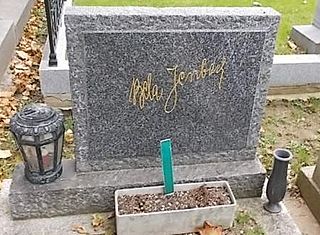 W
WBela Jenbach, real name Béla Jacobowicz was an Austrian actor and operetta librettist of Hungarian origin.
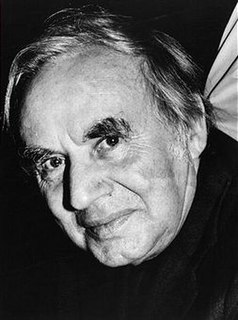 W
WRobert Jungk was an Austrian writer and journalist who wrote mostly on issues relating to nuclear weapons.
 W
WFranz Kafka was a German-speaking Bohemian novelist and short-story writer, widely regarded as one of the major figures of 20th-century literature. His work fuses elements of realism and the fantastic. It typically features isolated protagonists facing bizarre or surrealistic predicaments and incomprehensible socio-bureaucratic powers. It has been interpreted as exploring themes of alienation, existential anxiety, guilt, and absurdity. His best known works include "Die Verwandlung", Der Process, and Das Schloss. The term Kafkaesque has entered the English language to describe situations like those found in his writing.
 W
WHans Kelsen was an Austrian jurist, legal philosopher and political philosopher. He was the author of the 1920 Austrian Constitution, which to a very large degree is still valid today. Due to the rise of totalitarianism in Austria, Kelsen left for Germany in 1930 but was forced to leave this university post after Hitler's seizure of power in 1933 because of his Jewish ancestry. That year he left for Geneva and later moved to the United States in 1940. In 1934, Roscoe Pound lauded Kelsen as "undoubtedly the leading jurist of the time." While in Vienna, Kelsen met Sigmund Freud and his circle, and wrote on the subject of social psychology and sociology.
 W
WMelanie Klein was an Austrian-British author and psychoanalyst known for her work in child analysis. She was the primary figure in the development of object relations theory. Klein suggested that pre-verbal existential anxiety in infancy catalyzed the formation of the unconscious, resulting in the unconscious splitting of the world into good and bad idealizations. In her theory, how the child resolves that split depends on the constitution of the child and the character of nurturing the child experiences; the quality of resolution can inform the presence, absence, and/or type of distresses a person experiences later in life.
 W
WMarie Lang was an Austrian feminist, theosophist and publisher. Born in 1858 in Vienna, Lang was raised in a liberal, upper-middle-class home. After divorcing her first husband in 1884, she married Edmund Lang and the two hosted an influential salon for politicians and intellectuals. Joining the women's movement toward the end of the 1880s, she quickly became an influential women's rights activist. In 1893, along with Auguste Fickert and Rosa Mayreder, she founded the Allgemeiner Österreichischer Frauenverein. In spite of provisions in Section 30 of the law governing associations, which prohibited women's political involvement, the three friends used their networks of influential politicians and intellectuals to press for legal changes in laws governing women and children's civil rights and in favor of women's suffrage. In 1898, she co-founded the women's journal Dokumente der Frauen, serving as its editor-in-chief until 1902.
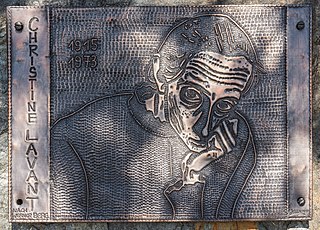 W
WChristine Lavant was an Austrian poet and novelist.
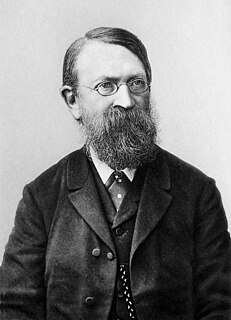 W
WErnst Waldfried Josef Wenzel Mach was an Austrian physicist and philosopher, noted for his contributions to physics such as the study of shock waves. The ratio of one's speed to that of sound is named the Mach number in his honour. As a philosopher of science, he was a major influence on logical positivism and American pragmatism. Through his criticism of Newton's theories of space and time, he foreshadowed Einstein's theory of relativity.
 W
WRuth Maier was an Austrian woman whose diaries describing her experiences of the Holocaust in Austria and Norway were published in 2007; reviews described her as "Norway's Anne Frank."
 W
WViktor Matejka was a Viennese politician and writer.
 W
WArmin Medosch was an Austrian artist, curator, theorist and critic working in the fields of net.art, new media art and DiY networking.
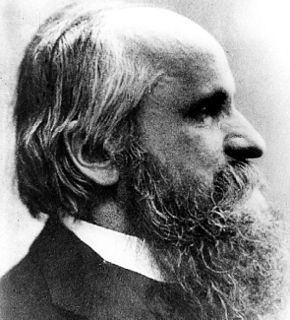 W
WAlexius Meinong Ritter von Handschuchsheim was an Austrian philosopher, a realist known for his unique ontology. He also made contributions to philosophy of mind and theory of value.
 W
WRobert Menasse is an Austrian writer.
 W
WChristine Nöstlinger was an Austrian writer best known for children's books. She received one of two inaugural Astrid Lindgren Memorial Awards from the Swedish Arts Council in 2003, the biggest prize in children's literature, for her career contribution to "children's and young adult literature in the broadest sense." She received the Hans Christian Andersen Medal for "lasting contribution to children's literature" in 1984 and was one of three people through 2012 to win both of these major international awards.
 W
WNorbert Pearlroth was a professional researcher and polyglot, and the primary researcher for the Ripley's Believe It or Not! cartoon panel from 1923 until 1975.
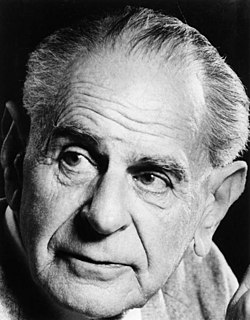 W
WSir Karl Raimund Popper was an Austrian-British philosopher, academic and social commentator.
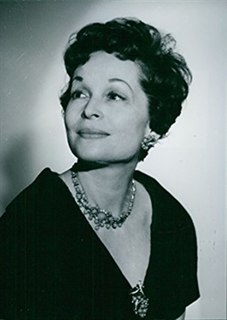 W
WIrene Prador was an Austrian-born actress and writer.
 W
WDoron Rabinovici is an Israeli-Austrian writer, historian and essayist. He was born in Tel Aviv in 1961 and moved to Vienna in 1964.
 W
WWilhelm Reich was an Austrian doctor of medicine and psychoanalyst, a member of the second generation of analysts after Sigmund Freud. The author of several influential books, most notably Character Analysis (1933), The Mass Psychology of Fascism (1933), and The Sexual Revolution (1936), Reich became known as one of the most radical figures in the history of psychiatry.
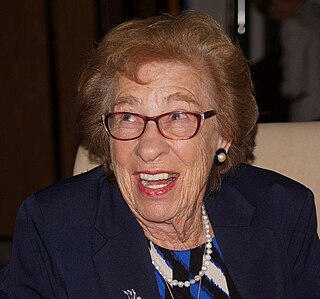 W
WEva Geiringer Schloss, MBE is an Austrian-English Holocaust survivor, memoirist and stepdaughter of Otto Frank, the father of Margot and diarist Anne Frank. Schloss speaks widely of her family's experiences during the Holocaust and is a participant in the USC Shoah Foundation's Visual History Archive project to record video answers to be used in educational tools.
 W
WAlfred Schutz was an Austrian philosopher and social phenomenologist whose work bridged sociological and phenomenological traditions. Schutz is gradually being recognized as one of the 20th century's leading philosophers of social science. He related Edmund Husserl's work to the social sciences, and influenced Max Weber's legacy of philosophical foundations for sociology and economics through Schutz's major work, Phenomenology of the Social World.
 W
WArnold Alois Schwarzenegger is an Austrian-American actor, businessman, retired professional bodybuilder and former politician who served as the 38th Governor of California from 2003 to 2011. As of 2020, he is the most recent Republican governor of California.
 W
WKlaus Thomas Steindl is an author, scriptwriter & director, film producer and owner of the company KREATIVkraft e.U. His primary focus is on nature and investigative documentaries that deal with internationally relevant issues, particularly in the field of Outstanding Biographies. Most of his award-winning documentaries have been produced for the international prime-time market.
 W
WFriedrich Torberg is the pen-name of Friedrich Kantor, an Austrian writer.
 W
WArthur Trebitsch (1880–1927) was an Austrian writer and racial theorist, known for being an antisemite of Jewish origin. He offered his services to help the fledgling Nazis to write their antisemitic literature, and was an influence on the early development of the Austrian branch of the Nazi party.
 W
WChristian Ferdinand Wehrschütz, born October 9, 1961 in Graz, is an Austrian journalist. He speaks English, Russian, Ukrainian, Serbian, French, Slovenian, Macedonian and Albanian and is a military interpreter of Russian and Ukrainian. He is married and has two daughters.
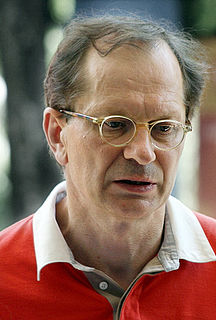 W
WJosef Winkler is an Austrian writer.
 W
WLudwig Josef Johann Wittgenstein was an Austrian-British philosopher who worked primarily in logic, the philosophy of mathematics, the philosophy of mind, and the philosophy of language.